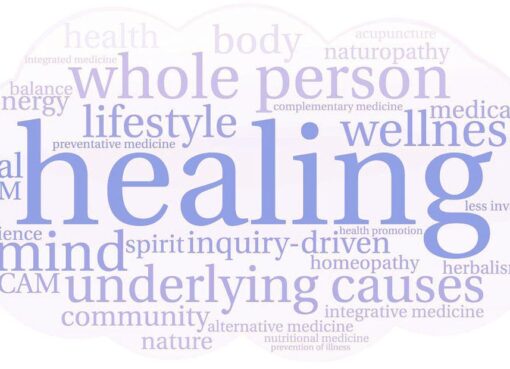Acupuncture

Acupuncture: An Ancient Healing Practice for Modern Health
Acupuncture, an age-old practice originating from traditional Chinese medicine, has gained significant recognition in the modern world. This therapeutic technique involves inserting thin, sterile needles into specific points on the body to stimulate the nervous system. The goal is to restore balance and promote the body’s natural healing process. While acupuncture has existed for over 2,000 years, its relevance today remains undeniable, offering a natural and holistic approach to health and wellness.
The Foundation of Acupuncture
Acupuncture is based on the concept of “Qi” (pronounced “chee”), which refers to the vital energy or life force that flows through the body. Traditional Chinese medicine believes that Qi flows through pathways called meridians. When the flow of Qi is disrupted, it can lead to illness or imbalance. Acupuncture seeks to restore harmony by targeting specific acupoints along these meridians, encouraging the body to heal itself.
Each acupoint has a unique role in balancing the flow of Qi. Practitioners carefully assess the body to identify areas where the energy flow may be blocked or weakened. By inserting needles into these precise points, acupuncture aims to release stagnant energy, promote blood circulation, and stimulate the body’s natural healing mechanisms.
The Science Behind Acupuncture
While acupuncture has long been practiced in Eastern medicine, scientific research has begun to explore its effectiveness from a Western perspective. Studies suggest that acupuncture works by stimulating the nervous system, triggering the release of neurotransmitters such as endorphins and serotonin. These chemicals play a key role in pain relief, mood regulation, and overall well-being.
Additionally, acupuncture may influence the body’s inflammatory response and immune system. Research has shown that acupuncture can help reduce chronic pain, alleviate stress, and improve overall physical function. Its ability to regulate the body’s autonomic nervous system is also a contributing factor to its effectiveness in treating a wide range of health issues.
Acupuncture for Pain Management
One of the most well-known uses of acupuncture is for pain relief. Whether it’s chronic back pain, osteoarthritis, or migraines, acupuncture has demonstrated the ability to reduce pain and improve quality of life. Studies indicate that acupuncture stimulates the release of natural pain-relieving chemicals in the body, such as endorphins, which can provide long-term relief without the side effects of medication.
Acupuncture is also effective in treating conditions like fibromyalgia, carpal tunnel syndrome, and temporomandibular joint (TMJ) disorders. By targeting specific acupoints that correspond to the affected areas, acupuncture can help reduce inflammation, increase circulation, and promote tissue repair.
Acupuncture for Mental Health and Stress Relief
In addition to its physical benefits, acupuncture has been shown to have a profound impact on mental health. Many people turn to acupuncture to alleviate stress, anxiety, and depression. The practice helps regulate the body’s stress response by stimulating the release of endorphins, which promote relaxation and a sense of well-being.
Acupuncture may also enhance sleep quality by promoting relaxation and reducing the factors that contribute to insomnia. As a natural alternative to sleeping pills, acupuncture can provide a safe and effective solution for those struggling with sleep disorders. Regular acupuncture sessions may help restore balance to the body’s internal systems, leading to improved mental clarity, focus, and emotional stability.
Acupuncture for Overall Wellness
Beyond treating specific ailments, acupuncture is increasingly used as a proactive measure to maintain overall health and wellness. Many individuals turn to acupuncture as a preventive therapy, helping to support the body’s immune system, improve circulation, and maintain a sense of balance. The holistic nature of acupuncture encourages self-care, as it addresses the root causes of health problems rather than just the symptoms.
Acupuncture is also a valuable tool for enhancing athletic performance and promoting recovery. Athletes use acupuncture to reduce muscle soreness, improve flexibility, and speed up recovery times after intense workouts. Its ability to stimulate blood flow and enhance the body’s natural repair processes makes it an essential therapy for those seeking to optimize their physical performance.
The Future of Acupuncture
As the demand for alternative therapies continues to rise, acupuncture is expected to play an increasingly important role in modern healthcare. With its proven effectiveness in pain management, stress relief, and overall wellness, acupuncture is becoming more integrated into mainstream medical practices. Many hospitals and clinics now offer acupuncture as part of their treatment options, highlighting its versatility and growing acceptance.
While acupuncture may not be suitable for everyone, its ability to promote healing without relying on pharmaceuticals makes it an attractive option for many individuals seeking a more natural approach to health. As research continues to unveil the science behind acupuncture, its role in promoting both physical and mental well-being will only continue to grow.
Conclusion
Acupuncture is a time-tested practice that blends ancient wisdom with modern scientific understanding. Whether used to alleviate pain, reduce stress, or maintain overall health, acupuncture offers a powerful, natural solution to many common health challenges. Its growing popularity and increasing recognition in Western medicine highlight its potential as a holistic and effective form of therapy. Whether as a complementary treatment or a primary healthcare approach, acupuncture has proven its place in the future of medicine.




Leave a Comment